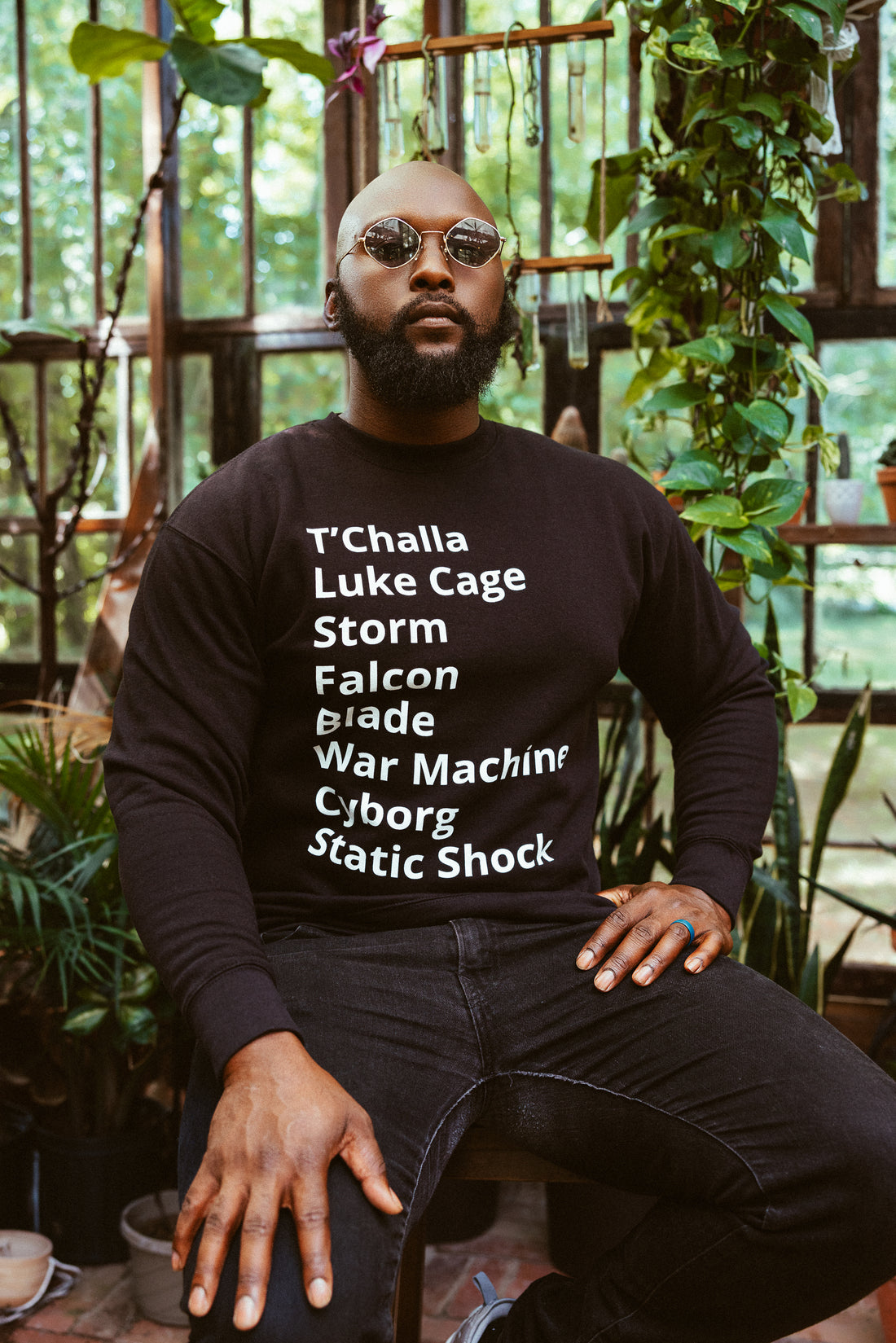Superheroes have long held a special place in the hearts of fans worldwide, transcending the pages of comic books to become cultural icons. Over the years, the inclusion of Black superheroes has not only diversified the superhero landscape but has also played a crucial role in breaking down racial stereotypes and empowering marginalized communities. In this blog post, we explore the remarkable impact of Black superheroes on media and culture, highlighting the significance of characters who have become symbols of strength, resilience, and representation.
1. **T'Challa (Black Panther): Royalty and Representation**
The introduction of T'Challa, the Black Panther, marked a watershed moment in superhero storytelling. Marvel's Wakandan king not only brought regality to the screen but also shattered stereotypes with a portrayal of African culture that resonated with audiences worldwide. "Black Panther" (2018) became a cultural phenomenon, showcasing the power of representation and the global appeal of diverse narratives.
2. **Luke Cage: Harlem's Hero Breaking Barriers**
Luke Cage, also known as Power Man, emerged as a groundbreaking character in the 1970s. Marvel's depiction of a bulletproof, street-level hero in the heart of Harlem challenged traditional superhero norms. The Netflix series "Luke Cage" (2016-2018) continued this legacy, addressing social issues and celebrating Black culture in a way that resonated deeply with viewers.
3. **Storm: The Weather Goddess Changing Winds of Representation**
Storm, a mutant with the power to control the weather, broke barriers as one of the first Black superheroes in mainstream comics. Whether leading the X-Men or standing on her own, Storm's character, both in comics and animated series, such as the iconic '90s "X-Men: The Animated Series," showcased a strong, complex Black female character and opened doors for greater diversity in superhero narratives.
4. **Falcon: Wings of Change and Symbolism**
Sam Wilson, the Falcon, soared onto the screen as the first Black superhero in the Marvel Cinematic Universe. His journey from a sidekick to Captain America in "The Falcon and the Winter Soldier" (2021) not only highlighted his character's growth but also symbolized the broader shift towards inclusivity and representation within superhero narratives.
5. **Blade: The Daywalker Redefining Vampire Lore**
Blade, portrayed by Wesley Snipes in a trilogy starting in 1998, brought a new dimension to superhero films by blending elements of horror and action. As a half-vampire "Daywalker," Blade's success paved the way for the resurgence of superhero movies in the early 2000s and demonstrated the marketability of characters from traditionally underrepresented backgrounds.
6. **War Machine: A Military Hero in Iron Armor**
Colonel James "Rhodey" Rhodes, aka War Machine, exemplifies the fusion of military prowess with superhero strength. As an integral part of the Marvel Cinematic Universe, War Machine, portrayed by Don Cheadle, contributes to the rich tapestry of characters and emphasizes the importance of representation within the superhero genre.
7. **Cyborg: Bridging the Gap Between Man and Machine**
Victor Stone, also known as Cyborg, is a prominent member of the DC Universe, bringing his technological prowess and unique struggles to the forefront. As a part-human, part-machine hero, Cyborg challenges traditional notions of identity and disability, offering a nuanced perspective on the human experience.
8. **Static: Electric Youth Empowering a New Generation**
Static, created by Dwayne McDuffie and Denys Cowan, made waves as a teenage superhero with electromagnetic powers. As the star of the animated series "Static Shock" (2000-2004), Static became a relatable figure for younger audiences, emphasizing the importance of diverse representation in superhero stories aimed at all age groups.
The impact of Black superheroes on media and culture extends far beyond the confines of comic book pages and movie screens. These characters have become symbols of empowerment, resilience, and representation, challenging stereotypes and inspiring audiences worldwide. As the superhero genre continues to evolve, the inclusion of diverse voices and narratives only strengthens its ability to connect with audiences from all walks of life. The legacy of Black superheroes serves as a testament to the transformative power of storytelling and the importance of embracing a multitude of perspectives in our shared cultural narratives.


